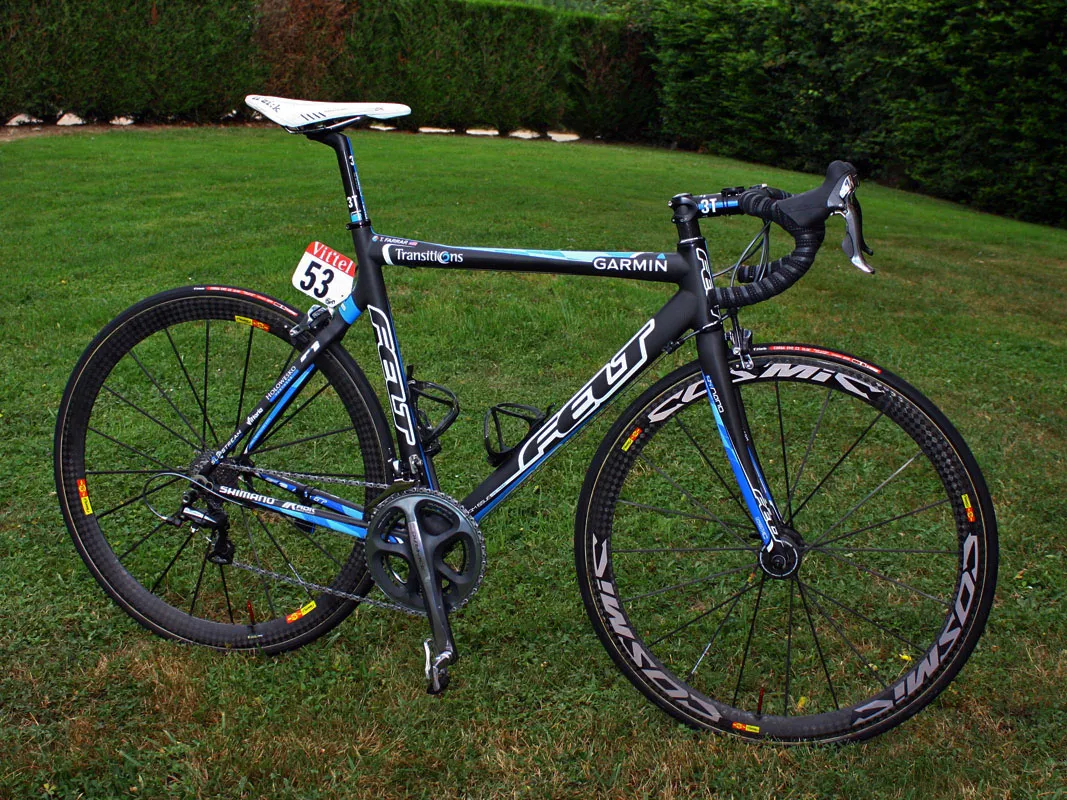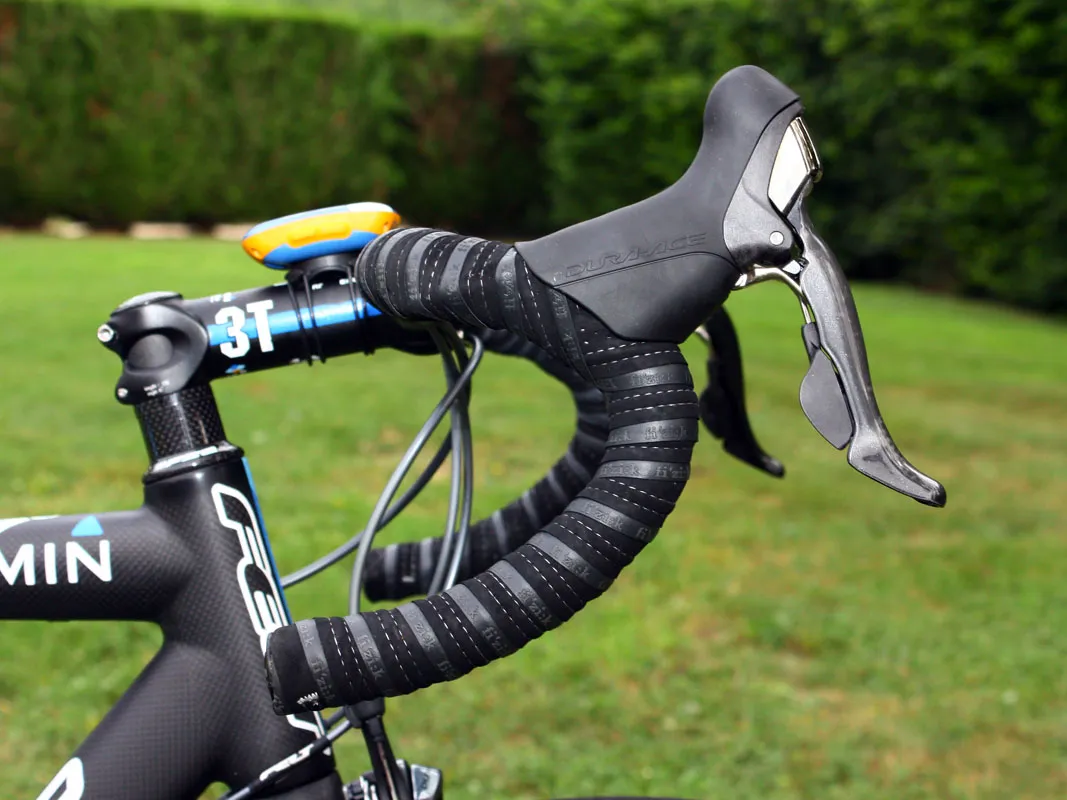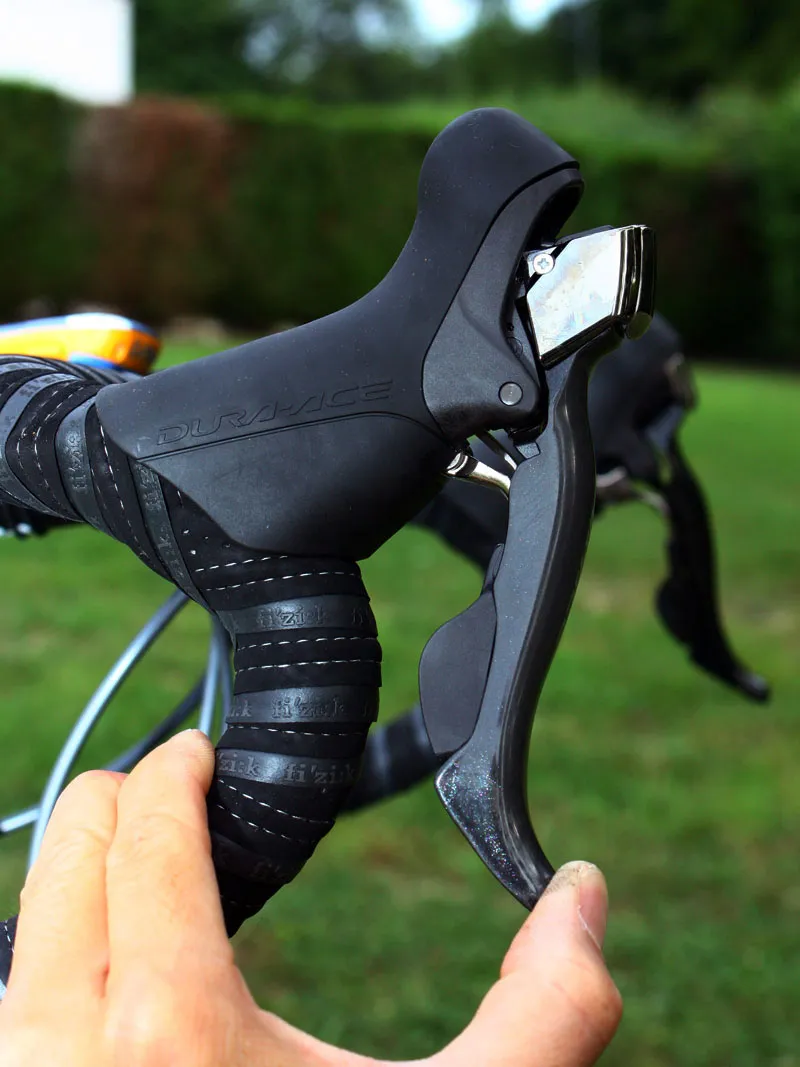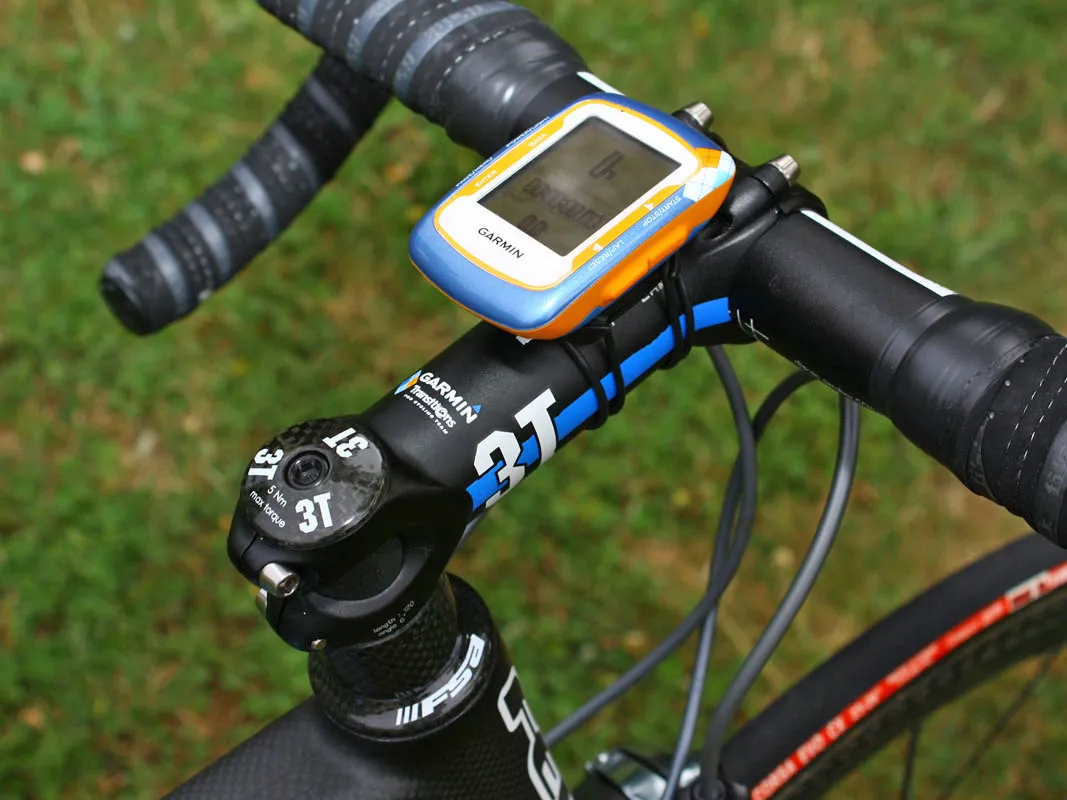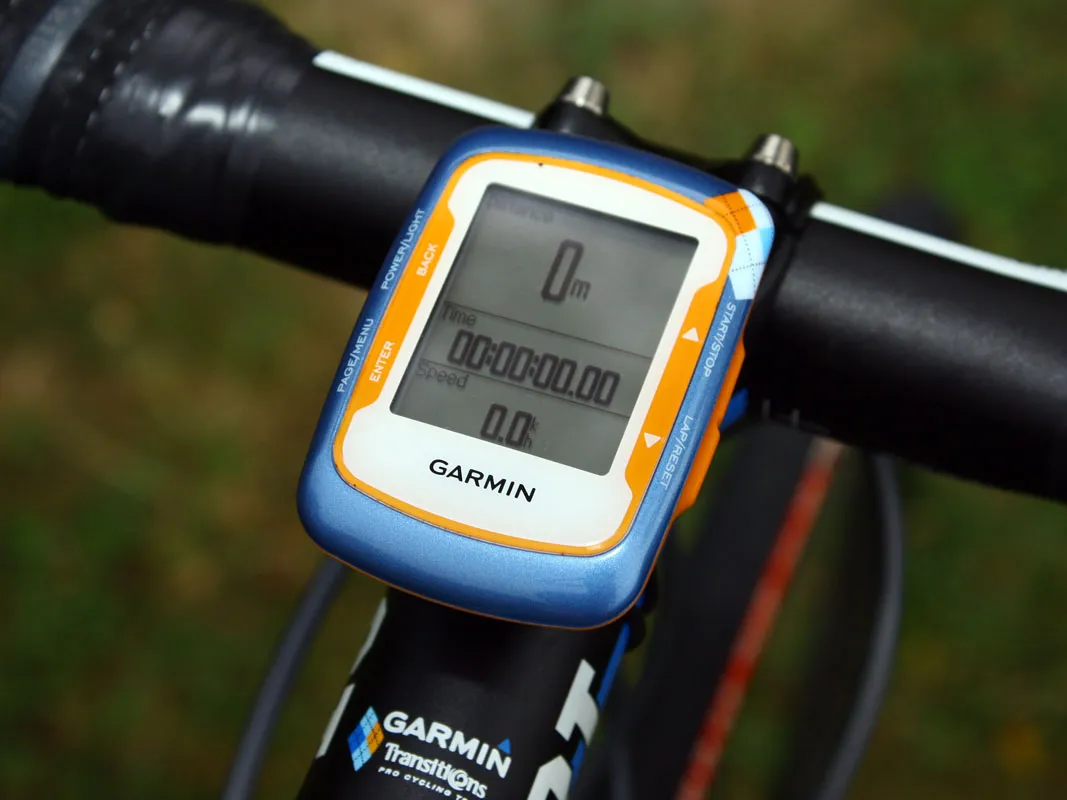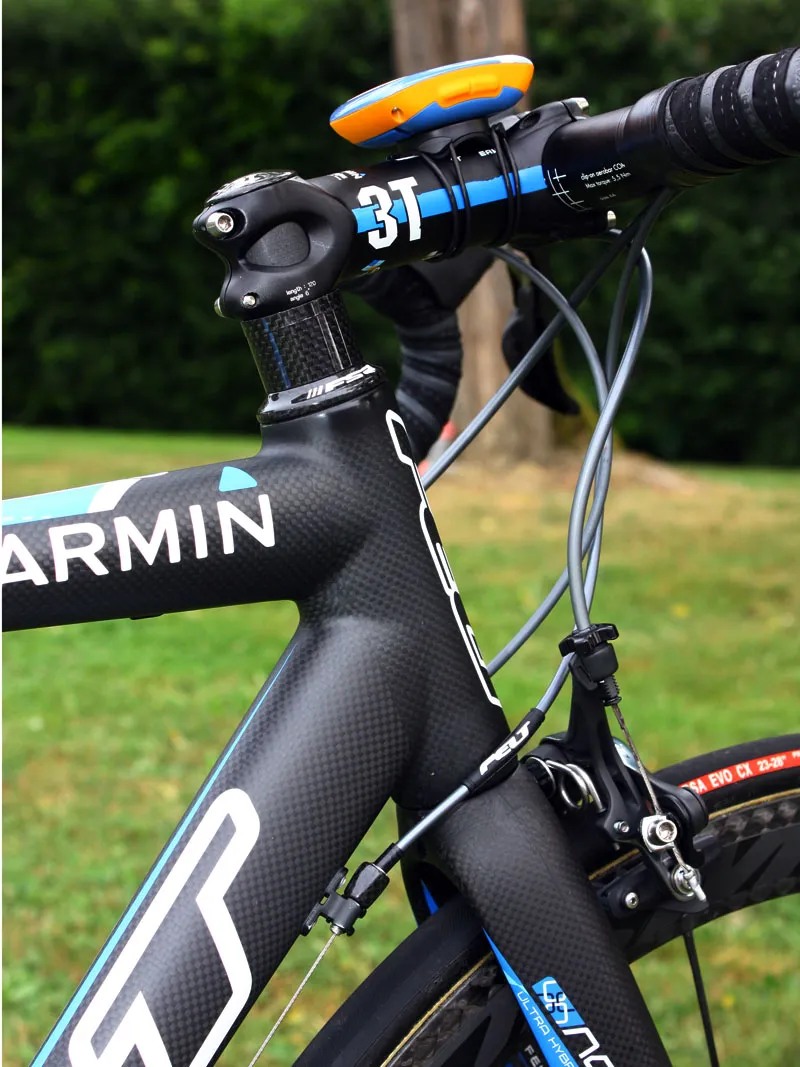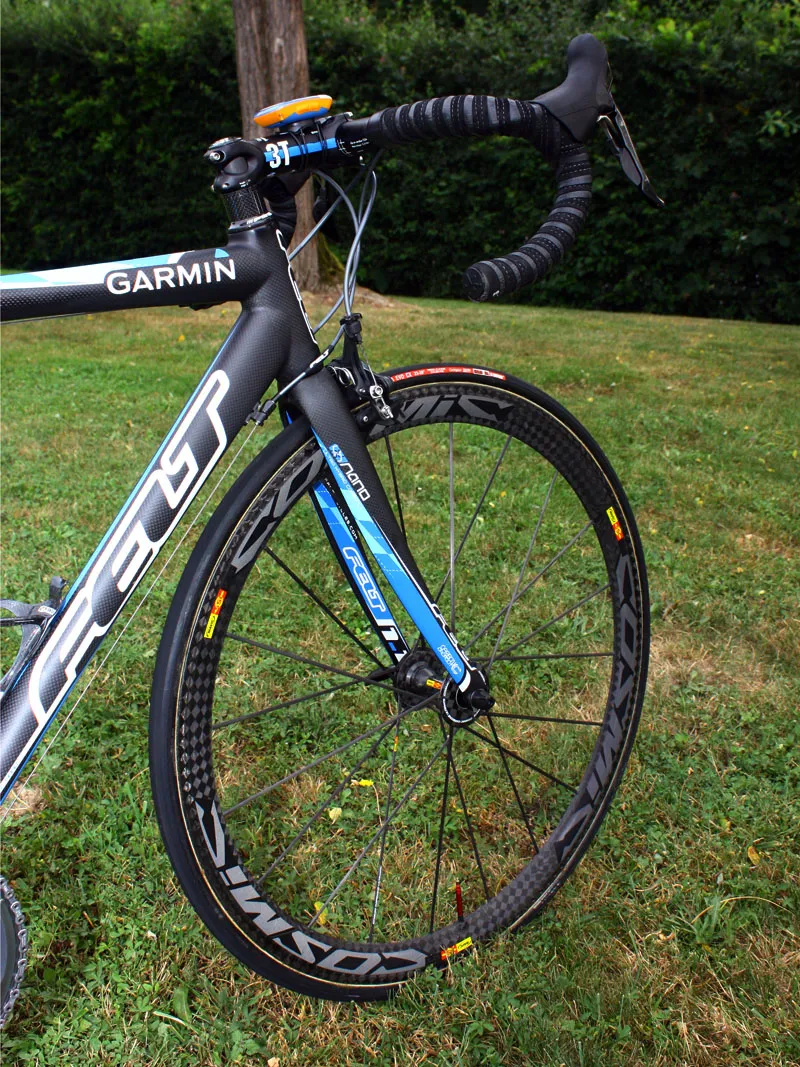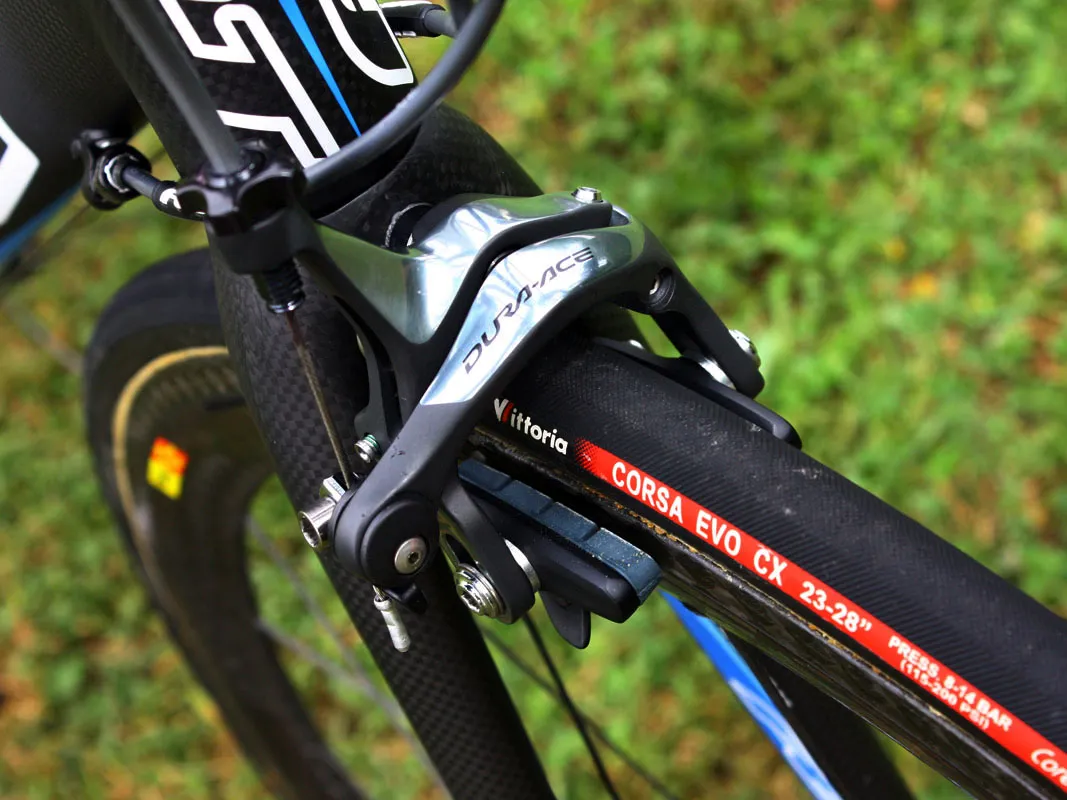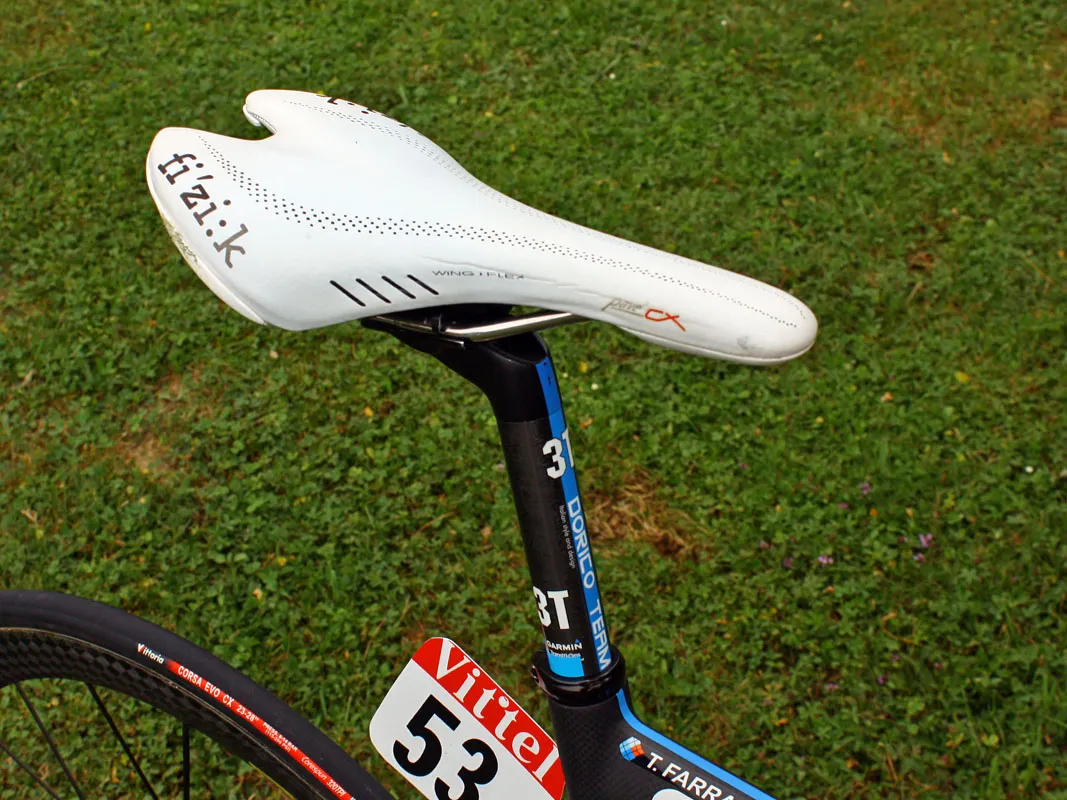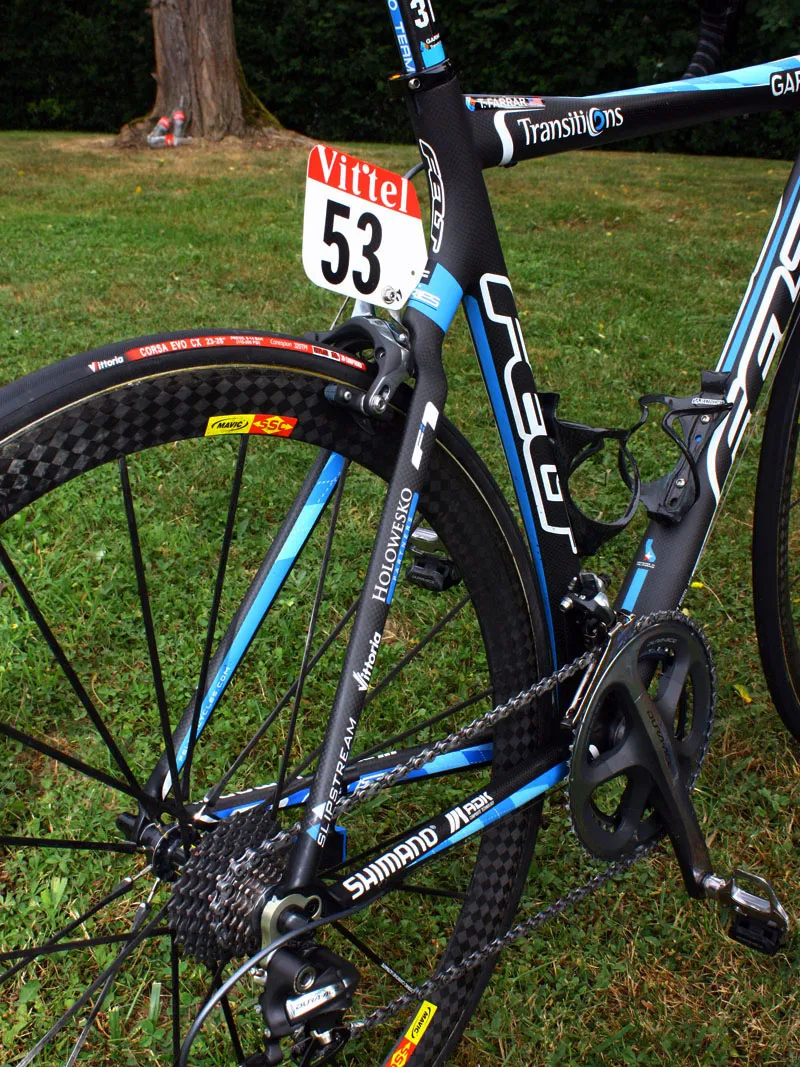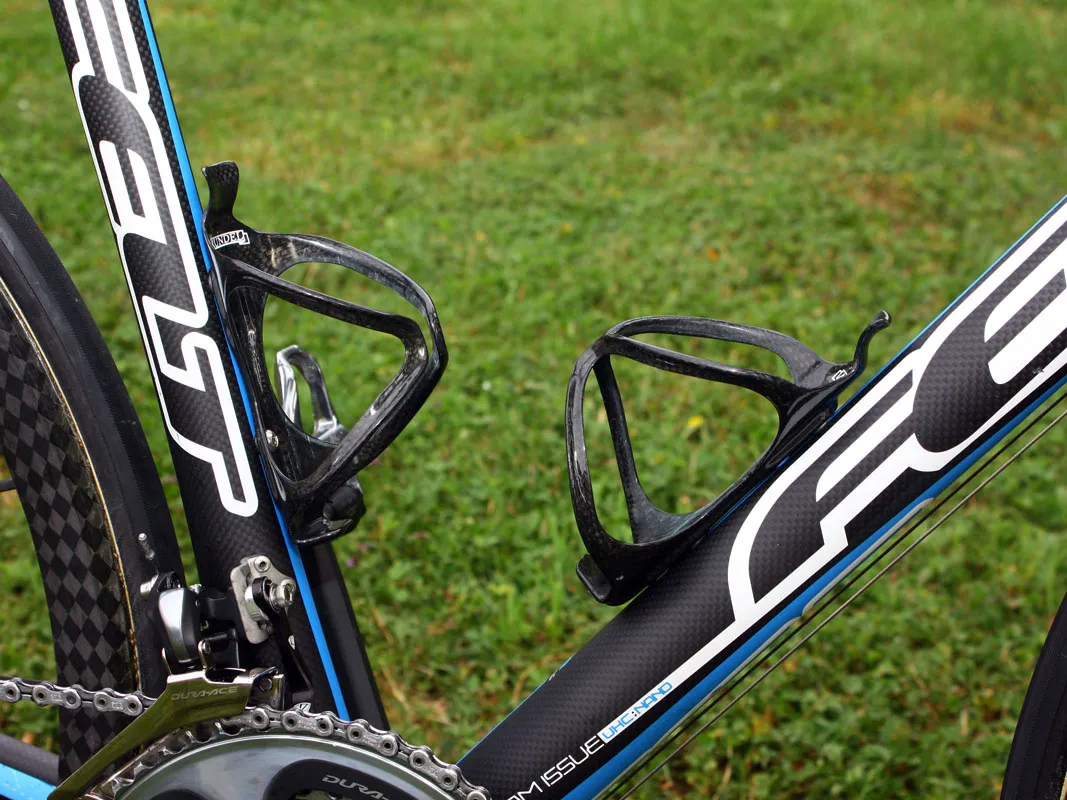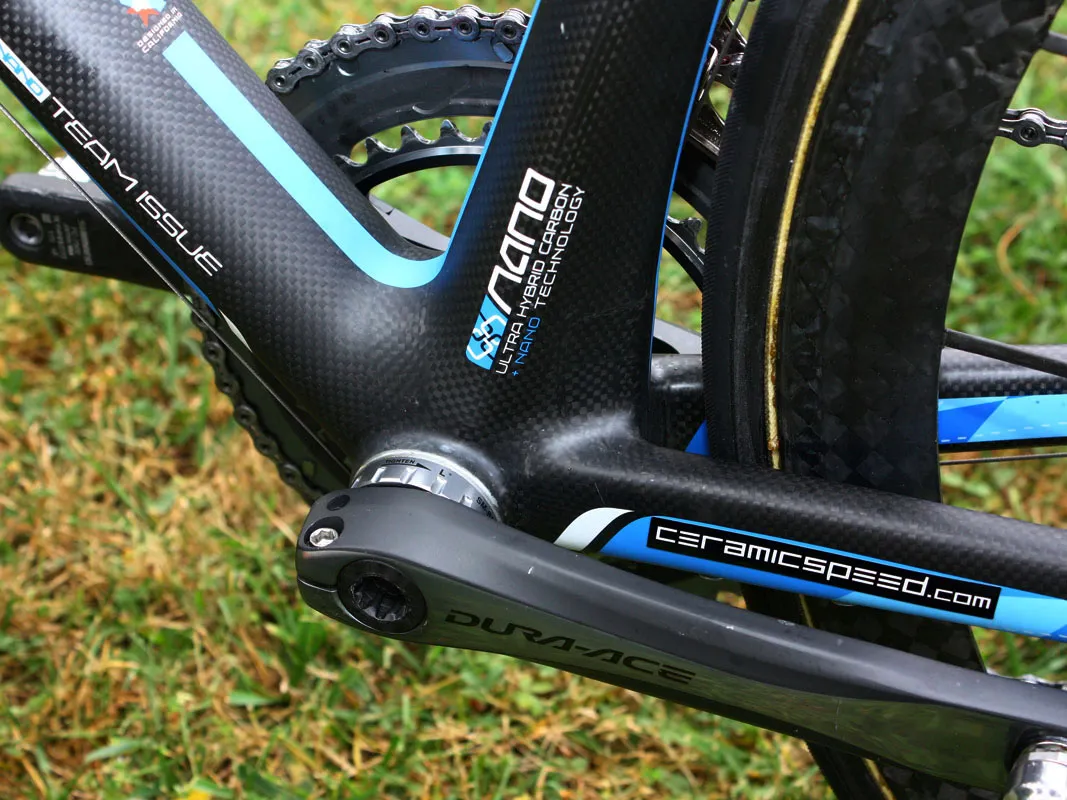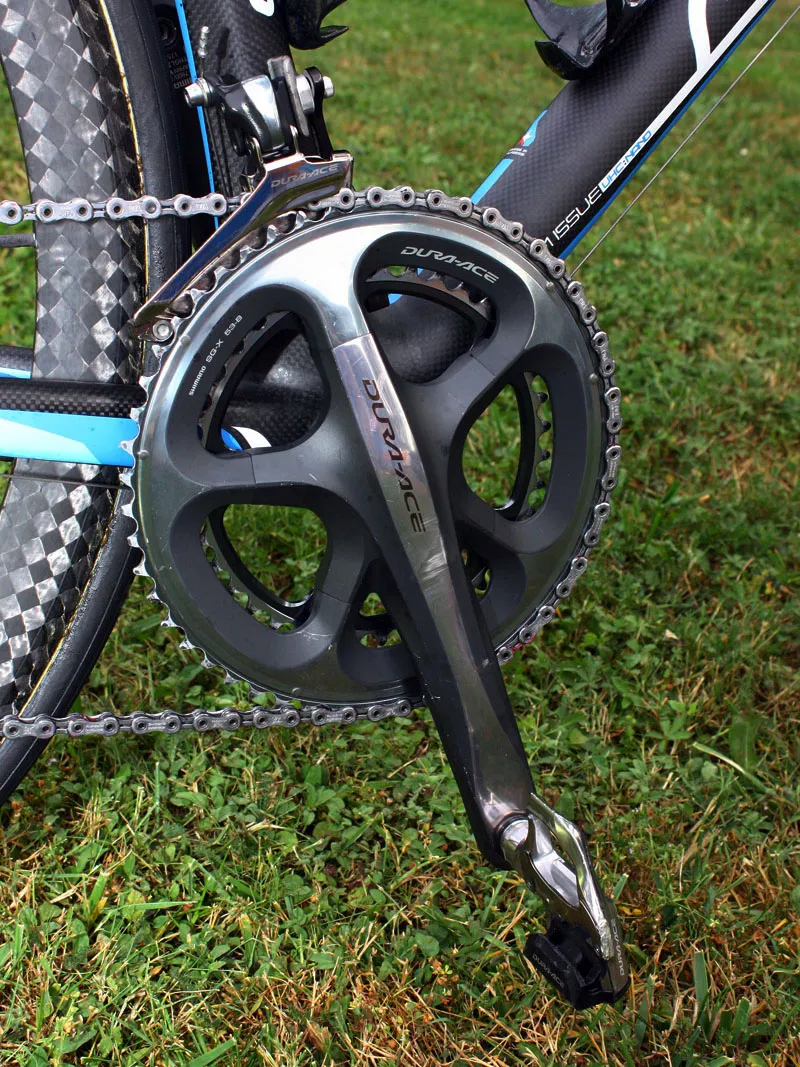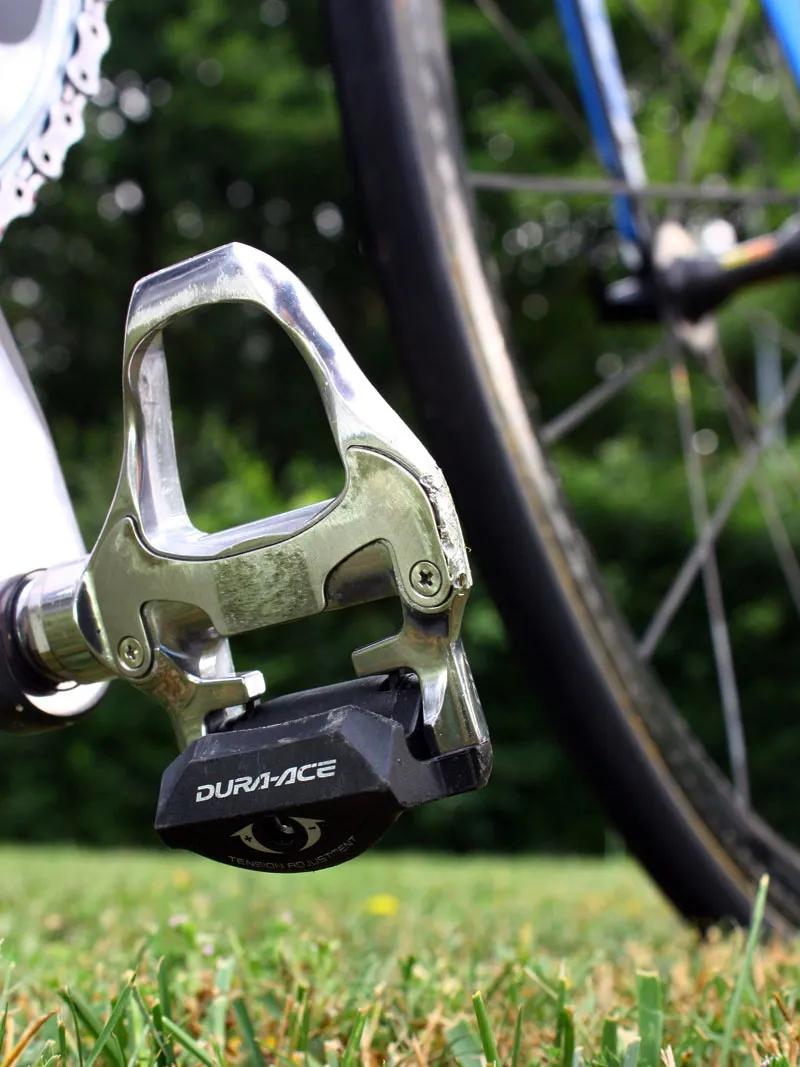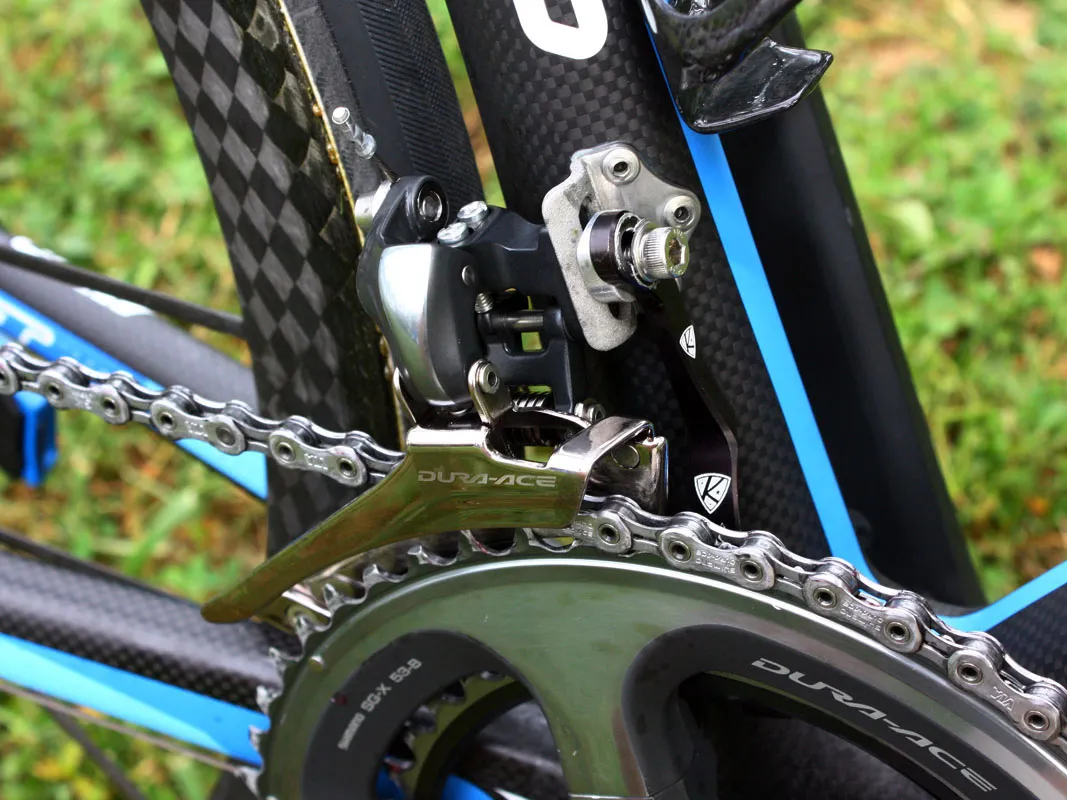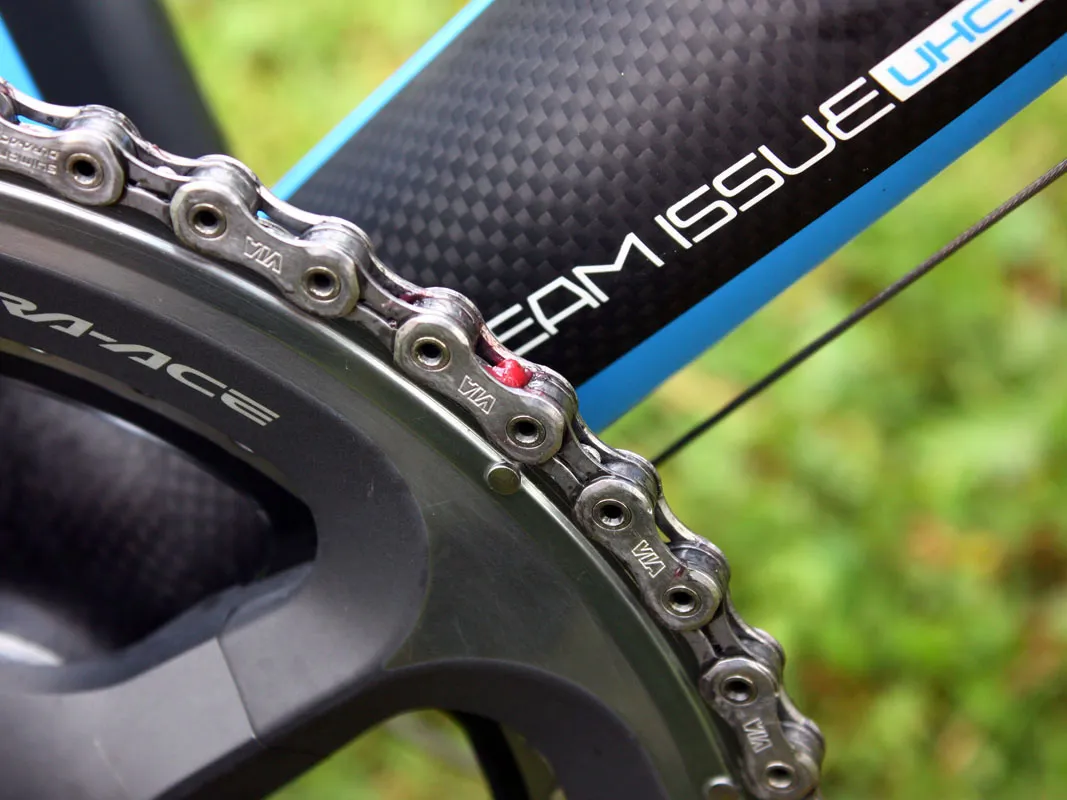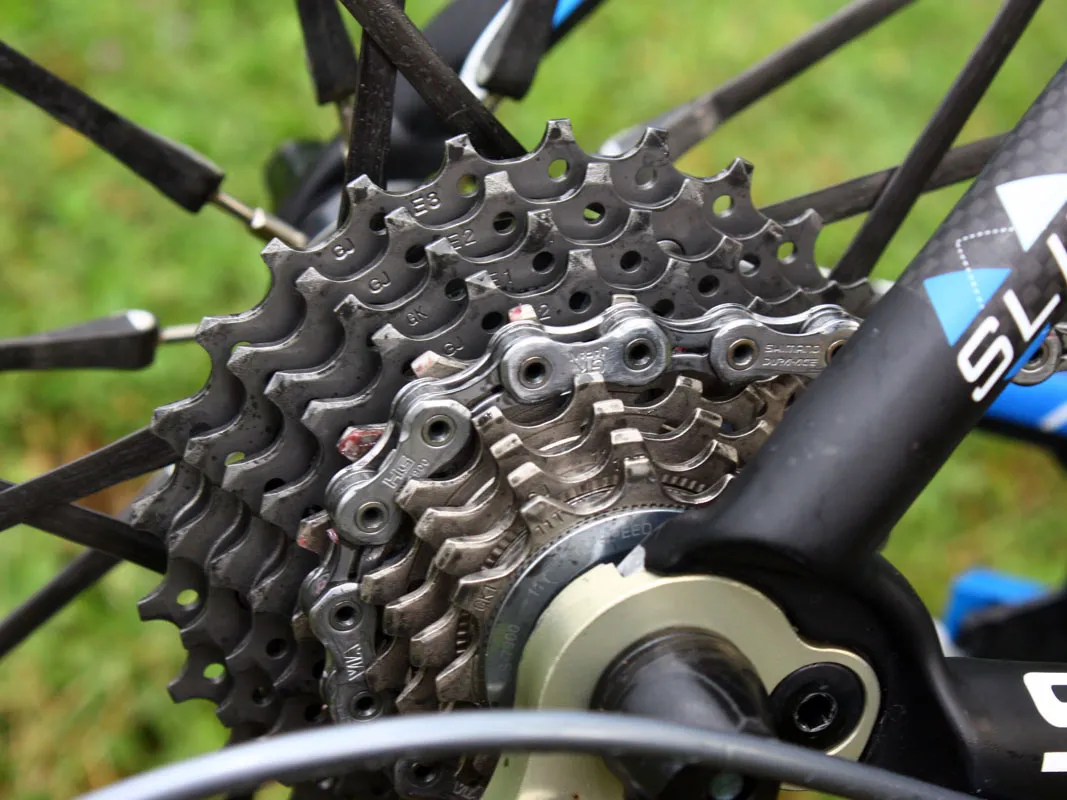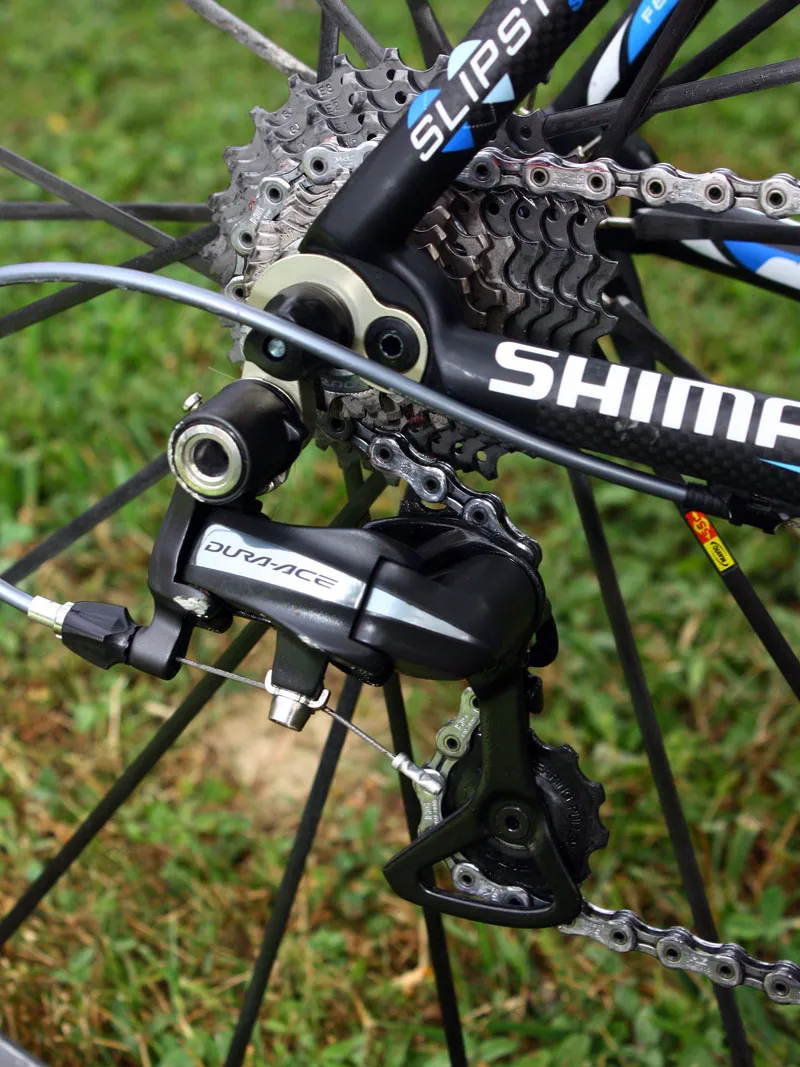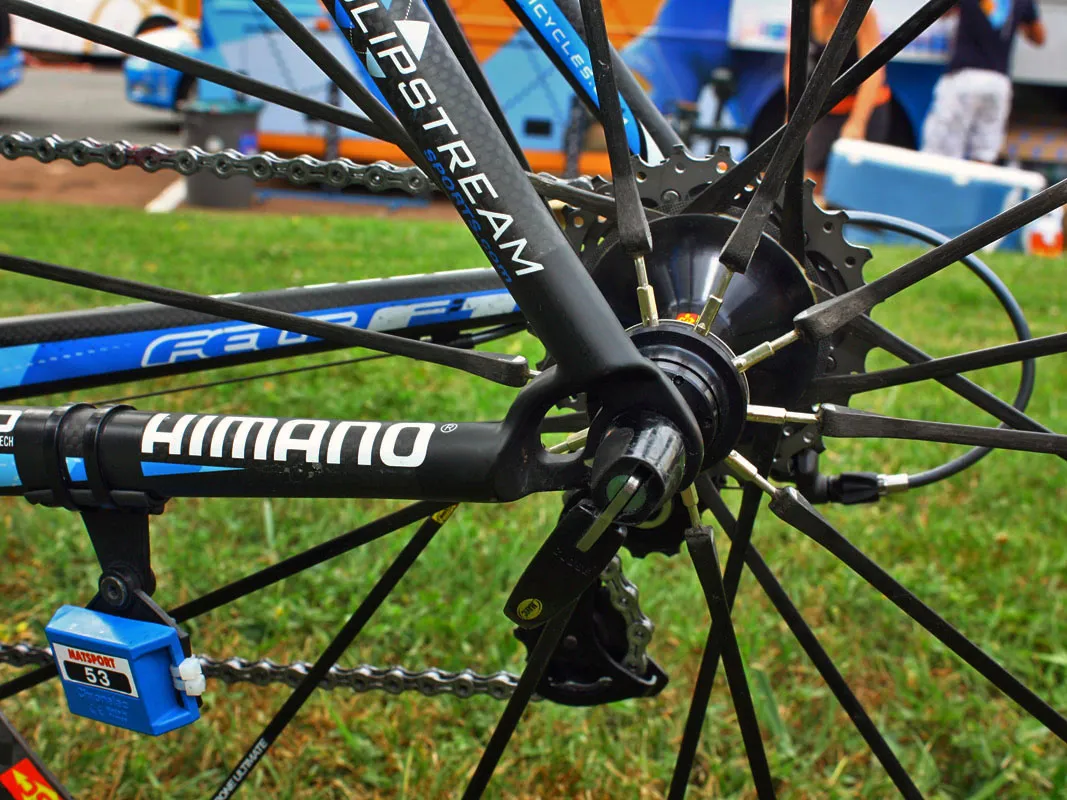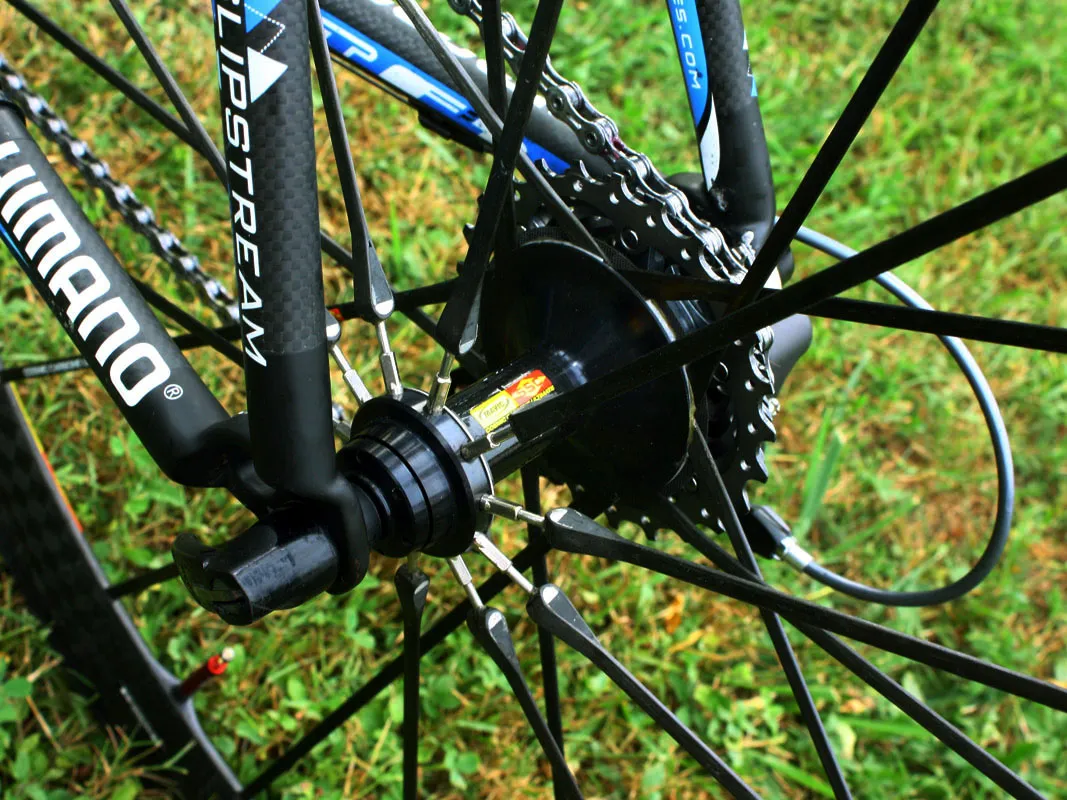Felt's catalogue lists two variants of their F1 carbon road racer flagship: the sub-900g F1 SL and the 300g-heavier, but much stiffer, F1 Sprint. For Garmin-Transitions sprinter Tyler Farrar and the rest of the squad, though, there's just the one 'Team Edition' model that blends aspects of both into a single frame.
Felt road product manager Dave Koesel says the team-only frames are built with a "beef/chicken" hybrid layup with characteristics taken from both F1 versions. While director of research and development Jeff Soucek admits the team edition frame "costs a bunch more to make", he says the end result is a frame that weighs just 1,000g but offers the same stiffness as the consumer-edition Sprint, albeit with a little less crash durability.
The other major difference between team bikes and consumer models is the fork. Garmin-Transitions forks use the same carbon blades, crown and steerer as the standard version but sub in alloy tips instead of the usual carbon fibre ones – not for issues of weight or durability but rather speed (and not in the way you'd think).
"We use alloy dropouts on the team’s F1s so we can CNC machine the tips without lawyer tabs and have them all 100 percent exactly the same width so the quick-releases can be preset for the fastest possible wheel change," said Koesel. "The compression moulded carbon dropouts are lighter, but there is a slightly greater tolerance on the width and they have moulded in 'lawyer tabs'. The team put up with the heavier alloy fork tips as most of them are still at 6.8kg and they’d rather have the two to five seconds saved on wheel changes."
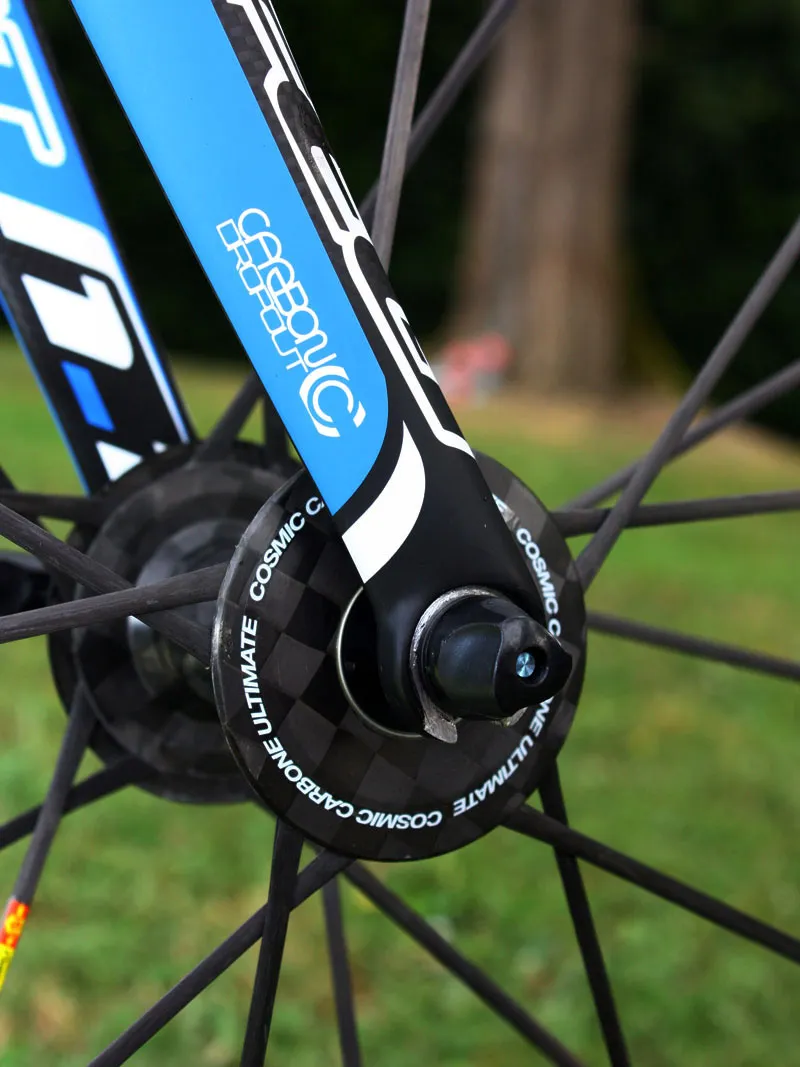
While consumer F1s get carbon fork tips, team framesets get machined alloy tips with more precise tolerances (and no safety tabs) for quicker wheel changes
"A skewer is M5x.8 thread pitch, so that means one turn of the skewer nut only tightens the wheel by 0.8mm. So, divide that in two to 0.4 because of the two dropouts, and you can see the tolerance of each dropout's thickness becomes very critical for the team," said Soucek. "So, 0.4mm is only 0.015in for one turn tolerance of the skewer.
"They [the team] want them perfect, so we machine them to a 0.002in thickness tolerance. We then provide a couple of sets of alloy machined dropouts wired together that the team use to set up the skewers on the support car. When it's time, they can just slam them in, lock and go."
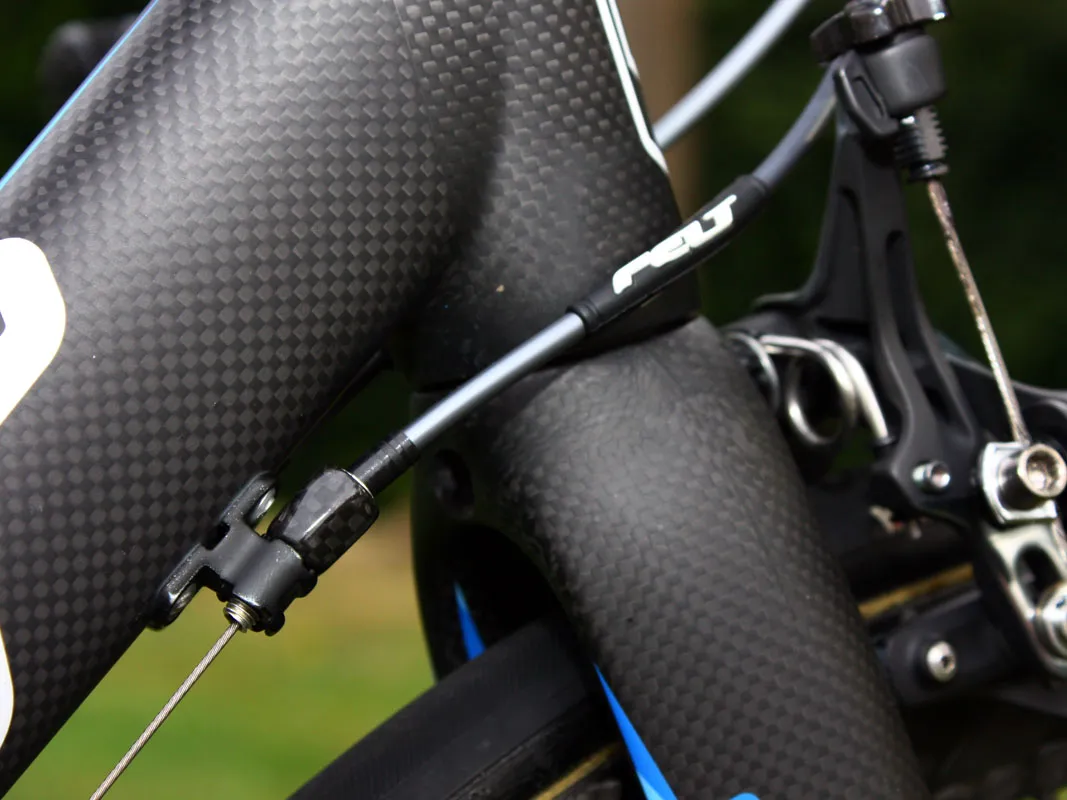
Carbon fibre barrels adjusters make for quick and convenient on-the-fly adjustments while the rubber frame protectors also provide another place for a logo
Otherwise, the rest of Farrar's machine is a decidedly standard setup. Shimano provide most of the running gear with their full Dura-Ace 7900 mechanical drivetrain, brakes, Dual Control levers and pedals; rolling stock comes courtesy of Mavic's versatile Cosmic Carbone Ultimate wheels and Vittoria Corsa EVO CX tubulars; 3T provide the bar, stem, and seatpost; and Farrar continues to soldier on on his preferred Fizik Pavé CX saddle.
Additional bits include Ceramicspeed bearings in the bottom bracket cups, a pair of Arundel Mandible carbon bottle cages, an AceCo K-Edge chain watcher and Garmin's latest Edge 500 GPS-enabled computer. Even under a strong sprinter like Farrar, total bike weight is still just 7.07kg (15.59lb) as pictured.
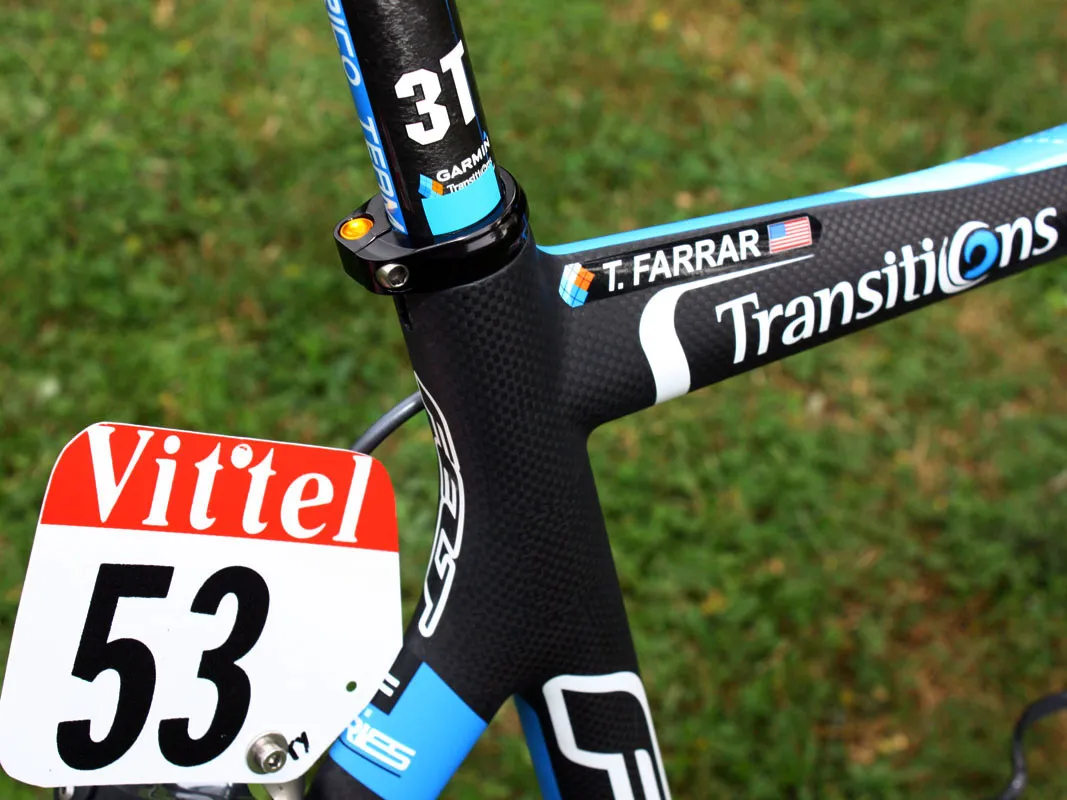
The offset seat cluster provides the anchor point for the 27.2mm-diameter seatpost
Complete bike specifications
- Frame: Felt F1 Team Edition, size 56cm
- Fork: Felt 1.1
- Headset: FSA Orbit integrated
- Stem: 3T ARX Team, 120mm x -6°
- Handlebar: 3T Ergonova Pro, 44cm (c-c)
- Tape/grips: Fizik dual:tape
- Front brake: Shimano Dura-Ace BR-7900 w/ carbon-specific pads
- Rear brake: Shimano Dura-Ace BR-7900 w/ carbon-specific pads
- Brake levers: Shimano Dura-Ace STI Dual Control ST-7900
- Front derailleur: Shimano Dura-Ace FD-7900-F
- Rear derailleur: Shimano Dura-Ace RD-7900-SS
- Shift levers: Shimano Dura-Ace STI Dual Control ST-7900
- Cassette: Shimano Dura-Ace CS-7900, 11-25T
- Chain: Shimano Dura-Ace CN-7900
- Crankset: Shimano Dura-Ace FC-7900, 175mm, 53/39T
- Bottom bracket: Shimano SM-BB7900 w/ Ceramicspeed bearings
- Pedals: Shimano Dura-Ace SPD-SL PD-7810
- Wheelset: Mavic Cosmic Carbone Ultimate
- Front tyre: Vittoria Corsa EVO CX tubular, 23mm
- Rear tyre: Vittoria Corsa EVO CX tubular, 23mm
- Saddle: Fizik Pavé CX
- Seatpost: 3T Dorico Team
- Bottle cages: Arundel Mandible (x2)
- Computer: Garmin Edge 500
- Other accessories: AceCo K-Edge chain watcher
Critical measurements
- Rider's height: 6ft (1.83m)
- Rider's weight: 74kg (163lb)
- Saddle height, from BB (c-t): 760mm
- Seat tube length, c-t: 560mm
- Seat tube length, c-c: 522mm
- Tip of saddle nose to C of bars (next to stem): 587mm
- Saddle-to-bar drop (vertical): 90mm
- Head tube length: 140mm
- Top tube length: 560mm
- Total bicycle weight: 7.07kg (15.59lb)
